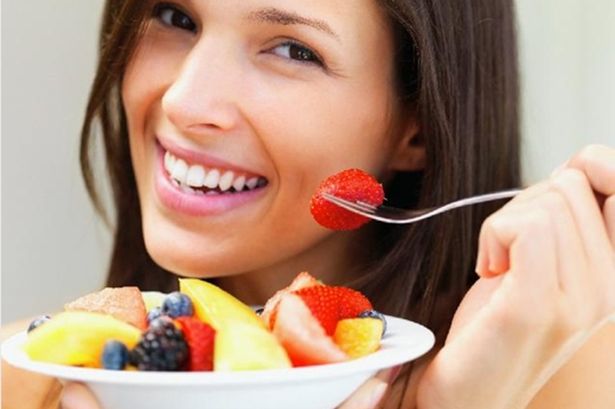How to Get Hydrated Without Drinking Water

You must have heard nutritionists saying 8 glass (64 ounces) water a day are essential to stay healthy, but not everyone remembers to drink that much everyday. Fortunately, you can stay hydrated without taking a full 64 ounces of water daily. All that you need to do is increase the intake of “water replacement” foods and beverages, like fresh fruits and vegetables, fruit juices, milk, coffee, tea etc.
Instructions
-
1
Eat lots of fresh fruits and Vegetables
Fruits and vegetables are top of the list water rich foods. On average, vegetables contain 90 to 95 percent water (cucumber 97 percent, tomatoes 95 percent and eggplant 92 percent). -
2
Drink plenty of fruit juices
Fresh fruits also have very high water content. Soft fruits contain 84 to 90% water, citrus fruits have 83 to 89% water content while tropical fruits contain 80 to 85% water. If you don’t like eating fruits, drink pure fruit juices, they are 95 percent water. Indulging yourself in fruit salads is also an easy way t meet your daily hydration needs without drinking water. -
3
Increase intake of Dairy Products
Dairy products like milk and yogurt are best known for their calcium and protein content but only a few know that they are also a rich source of water. For instance, milk contains 88% water while yogurt is 80% water. -
4
Don’t discount beans, grains and pasta
It is a common perception that “Dry” foods like rice, pasta, beans and grains dehydrate your body, which is not correct. In fact dry foods act as sponges when cooked and become water rich by absorbing the water in which they are cooked. One cup of rice contains an equal amount of water while a cup of red beans supplies more than ¾ cup of water. -
5
Caffeinated beverages also contribute
According to conventional wisdom, caffeinated beverages cause a person to lose fluids, owing to their diuretic nature. But researches have revealed that despite being diuretic, these beverages do not cause loss of water in your entire body, rather they contribute to a person’s daily water intake as much as non-caffeinated drinks do.


